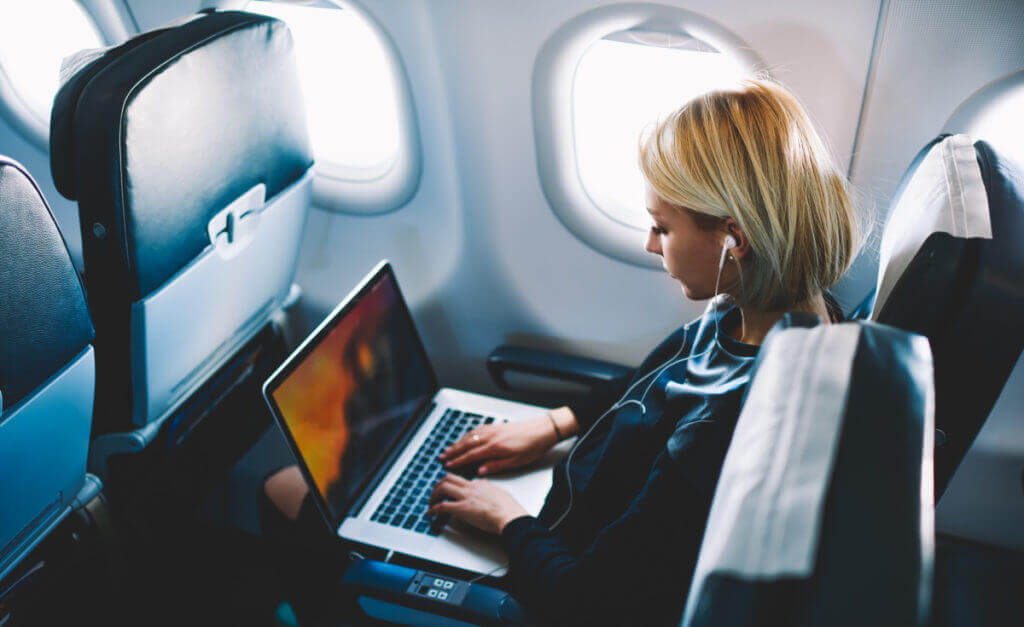
Business travel as we’ve known it is a thing of the past. From Pfizer Inc., Michelin and LG Electronics Inc. to HSBC Holdings Plc, Hershey Co., Invesco Ltd. and Deutsche Bank AG, businesses around the world are signaling that innovative new communications tools are making many pre-pandemic-era trips history.
NB: This is an article from Bloomberg
Take Akzo Nobel NV, Europe’s biggest paint maker, for instance. At its Amsterdam headquarters, Chief Executive Officer Thierry Vanlancker has spent the past year watching his manufacturing head, David Prinselaar, flap his arms, madly gesticulate and seemingly talk to himself while “visiting” 124 plants by directing staff with high-definition augmented-reality headgear on factory floors. A task that meant crisscrossing the globe in a plane before is now done in a fraction of the time — and with no jet lag. For Vanlancker, there’s no going back.
Subscribe to our weekly newsletter and stay up to date
“Trips to drum up business could drop by a third, and internal meetings by even more,” he said in an interview. “It’s a good thing for our wallets and helps our sustainability targets. Our customers have had a year of training, so it’s not a social no-no anymore to just reach out by video… There’s an enormous efficiency element.”
A Bloomberg survey of 45 large businesses in the U.S., Europe and Asia shows that 84% plan to spend less on travel post-pandemic. A majority of the respondents cutting travel budgets see reductions of between 20% and 40%, with about two in three slashing both internal and external in-person meetings. The ease and efficiency of virtual software, cost savings and lower carbon emissions were the primary reasons cited for the cutbacks. According to the Global Business Travel Association, spending on corporate trips could slide to as low as $1.24 trillion by 2024 from a pre-pandemic peak in 2019 of $1.43 trillion.
Cutting Back on Business Travel
Major global companies plan to cut back on flying after the pandemic…

… with many expecting to slash travel budgets by up to 30%

Source: Bloomberg News survey
Business travel has “forever changed,” Greg Hayes, CEO of jet-engine maker Raytheon Technologies Corp., said in a Bloomberg Radio interview in July. About 30% of normal commercial air traffic is corporate-related but only half of that is likely mandatory, he said. While the market may eventually recover, sophisticated communication technologies have “really changed our thinking in terms of productivity,” Hayes said.
Having saved billions from slashed travel budgets during the pandemic with only a marginal impact on operations, companies, banks, consulting firms and government offices will be hard pressed to explain why they’d return to their old ways. Kit Kat chocolate-bar maker Hershey said the pandemic showed that online meetings were a more efficient use of time and financial resources. Companies like Pfizer are grappling with questions about what one accomplishes with a trip that can’t be done virtually, Tina Quattlebaum, its director of global travel operations, said at the GBTA Mid-Year Virtual Summit in July.




